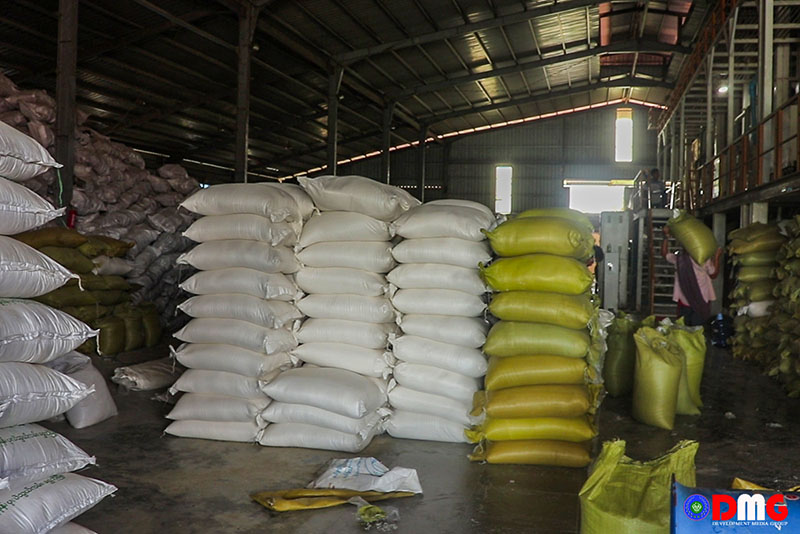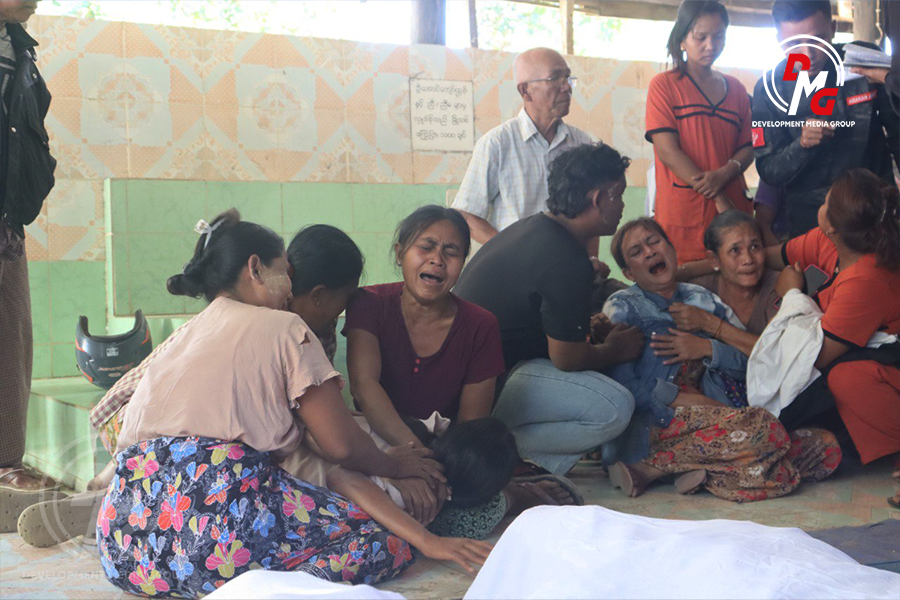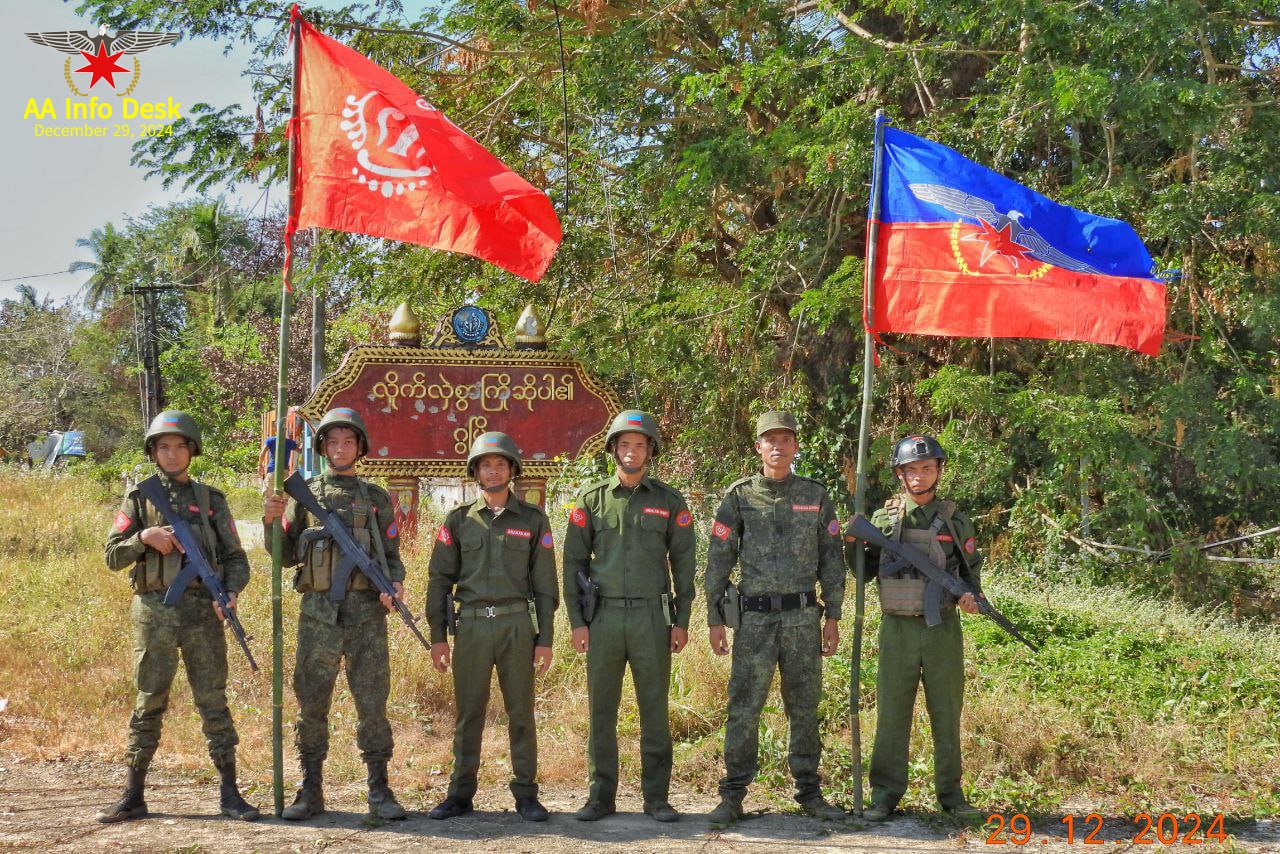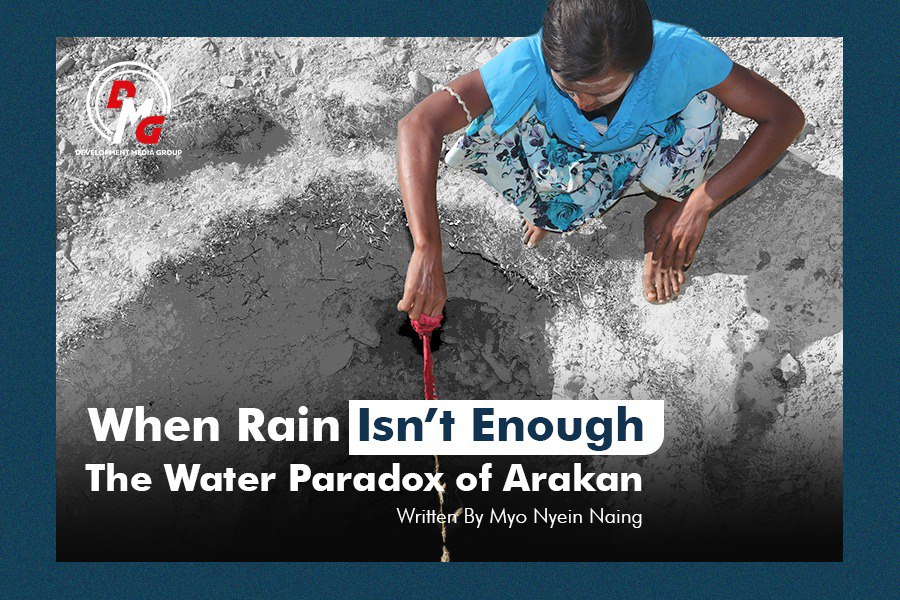- Junta unable to hold elections in dozens of wards and village-tracts in Sittwe, Kyaukphyu
- Fighting escalates between Myanmar military, Arakan Army in Ayeyarwady Region
- Regime steps up civilian arrests in Sittwe
- ULA safeguards Mrauk-U's ancient heritage
- Arakan on the Edge: What the DMG Landmine Impact Report Reveals About Myanmar's Deepening Humanitarian Crisis
2,500 tonnes of Arakan State-grown rice to be exported to Bangladesh
The Myanmar Rice Federation (MRF) has reached a deal to send 200,000 tonnes of rice to Bangladesh, of which Arakan State will supply 2,500 tonnes, according to U Than Shwe, chairman of the Arakan State Rice Millers Association.
28 Oct 2022

DMG Newsroom
28 October 2022, Sittwe
The Myanmar Rice Federation (MRF) has reached a deal to send 200,000 tonnes of rice to Bangladesh, of which Arakan State will supply 2,500 tonnes, according to U Than Shwe, chairman of the Arakan State Rice Millers Association.
“We’ll sell 2,500 tonnes to the MRF in December, when rice will be harvested. We are not directly exporting to Bangladesh. But the MRF will export via Sittwe,” he said.
Under the agreement, the MRF has agreed to sell at a COF (cost and freight) price of US$465.50 per tonne to be delivered to Chittagong Port, according to the Rakhine State Chamber of Commerce and Industry.
The Arakan State Rice Millers Association plans to sell to the MRF at US$400 per tonne.
A rice merchant from Sittwe said: “It is good to export rice to Bangladesh. This will bring up prices. Farmers will earn higher profits only when there is a market. Rice prices will decline when the demand is sluggish.”
Four rice mills in Kyauktaw, one in Ponnagyun and two in Sittwe will supply export-quality rice to the MRF for export to Bangladesh.
Meanwhile, farmers in Arakan State predict a poor rice harvest this year as they could not use sufficient fertiliser due to high prices, and also could not take proper care of their farms due to renewed fighting between the Myanmar military and Arakan Army.
The Arakan State Rice Millers Association has decided to sell 2,500 tonnes of rice to the MRF for the sake of local farmers who have had to spend more on agricultural inputs due to price hikes, said U Than Shwe.
“We have to take both farmers and consumers into consideration,” he explained. “Because farmers had to spend more on inputs, we have decided to sell rice in their interests. We think that amount will not affect [local] consumers. But if we sell large volumes, it will definitely affect consumers.”
There are more than 1.2 million acres of farmland in Arakan State, but only 850,000 acres could be brought under paddy cultivation due to various factors, according to data from the Arakan Farmers Union.
Some 50,000 acres of paddy fields in Buthidaung, Maungdaw and Rathedaung townships were left unattended due to the renewed fighting, which kicked off in August, and yields are expected to decline by about 30 percent compared with previous years, said the Arakan Farmers Union.

















